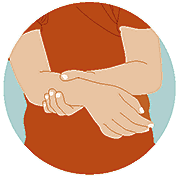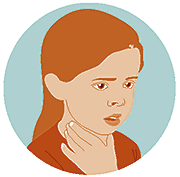DHHS → MeCDC → Disease Surveillance → Epidemiology → Airborne and Direct Contact Diseases → Acute Flaccid Myelitis (AFM)
Acute Flaccid Myelitis (AFM)
Acute flaccid myelitis (AFM) is a rare but serious condition. It affects the nervous system causing the muscles and reflexes in the body to become weak. Most AFM cases occur in late summer and early fall between August and October. More than 90% of cases have been in young children.
Clinicians should report all patients suspected to have AFM, especially after respiratory illness or fever to Maine Center for Disease Control and Prevention (Maine CDC) as soon as possible.
On this page
Symptoms of AFM

The most common symptoms are arm or leg weakness and loss of muscle tone and reflexes.
Some people will also have:

Facial droop or weakness

Difficulty moving eyes or drooping eyelids

Difficulty swallowing or slurred speech
These symptoms can also include pain in the arms or legs. In rare cases people may also have numbness or tingling and/or be unable to urinate. Severe cases of AFM can cause issues with breathing or even death.
Possible Causes of AFM
Prevention of AFM
Since the cause of AFM is unknown, there is no specific action to take to prevent AFM. You can decrease the risk of getting and spreading viral infections by:

